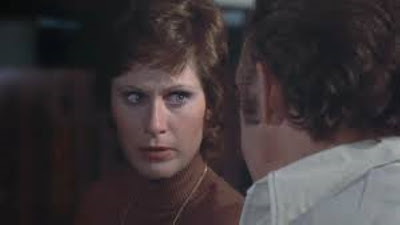 |
| Alan Sharp |
In his films as in life, Scots screenwriter and occasional director Alan Sharp showed himself a master of the French Exit, that capacity to transit in the shortest possible time and with the least ceremony the distance between an uncomfortable situation and the door. "He showed up for Rudi's birth,” recalled novelist Beryl Bainbridge, who bore him a daughter, “but then went downstairs saying he was going to get a book out of the car, and never came back."
Sharp died in 2013. The New YorkTimes obituary decreed "He had a huge talent, but sometimes seemed to lack ambition, or was reluctant to commit himself or seemed afflicted with doubt about his own abilities, dismissing his work as 'pastiche'” Notwithstanding these conditions – which afflict most writers from time to time, if not always concurrently - he wrote a handful of memorable screenplays, in particularThe Last Run and The Hired Hand (1971), Ulzana’s Raid (1972) and, the most terse and least sentimental of this bitter quartet, Night Moves (1975), a film that, with each decade, edges closer to acceptance as a masterpiece.
Sharp called it “an attempt to use the classic detective format, the private eye, and then set him in a landscape in which he was unable to solve the case." To director Arthur Penn. it was a “counter-genre film” about a “mystery for which no solution exists or can be found.” It’s among the first Hollywood films to show the influence of L’Avventura. In Antonioni’s austere fable, two strangers set out to find a woman – the lover of one, a friend of the other – who has disappeared. In the process they fall in love, and stop looking – an offence against narrative orthodoxy but entirely true to life.
 |
| Gene Hackman as Harry Moseby, Night Moves |
Night Moves follows Gene Hackman’s Harry Moseby, a former pro footballer, as he ambles through his retirement career as a private eye. His default manner, an easy indolence enlivened by the occasional wisecrack, has driven his wife Ellen (Susan Clark) into the arms of Marty Heller (Harris Yulin) – really just an up-market version of Harry, but one who limps picturesquely with a cane, owns a Malibu beach house and likes the Eric Rohmer movies which, to Harry, resemble paint drying (Did Sharp coin this now familiar gibe?). Ellen hopes the affair will jolt Harry out of his anomie but instead he just sulks.
 |
| Susan Clark as Ellen Moseby, Night Moves |
One-time movie actress Arlene Iverson (Janet Ward) hires him to retrieve her runaway daughter Delly – for Delilah. (“My husband wanted to produce biblical movies.”) Played, mostly naked, by sixteen-year-old Melanie Griffith, she isn’t hard to find, hanging out on the Florida Keys with her beach-bum step-father and his girlfriend Paula (Jennifer Warren). After a few days loitering and one night with Paula, Harry brings her home.
 |
| Melanie Griffith as Delly Iverson, Night Moves |
In Paula, Harry finds a partner who shares his pleasure in solitude. She can also match him quip for quip. “You’re edgy,” he observes. “It’s the heat,” she says, “and the low wages.” Asked what she’s doing in the Keys, she replies, deadpan, “I’m convalescing from a dreadful childhood. My father blew his nose with fingers.” Hooked, he becomes her straight man. “Where were you when Kennedy was killed?” she enquires as they drift into bed. “Which Kennedy?” he responds. Asked how he resisted Delly’s sexual overtures, he says “I thought clean thoughts – Thanksgiving, and George Washington’s teeth.”
Sharp’s experiences with directors were generally unhappy. Robert Aldrich’s synthetic toughness is all over Ulzana’s Raid, which Sharp meant as an unflinching, almost forensic look at the cruelty of the Indian wars. Peter Fonda’s decision to direct himself in The Hired Hand led to a film of elegiac simplicity but none of Sharp’s abrasion. The Last Run was an unsentimental account of a retired gangster ending his career with courage and style, but John Huston rewrote most of the script, then clashed with star George C. Scott (who didn’t?) and left Richard Fleischer to complete the film. But Arthur Penn had the sense to leave Sharp alone, and we are all in his debt.
No comments:
Post a Comment
Note: only a member of this blog may post a comment.